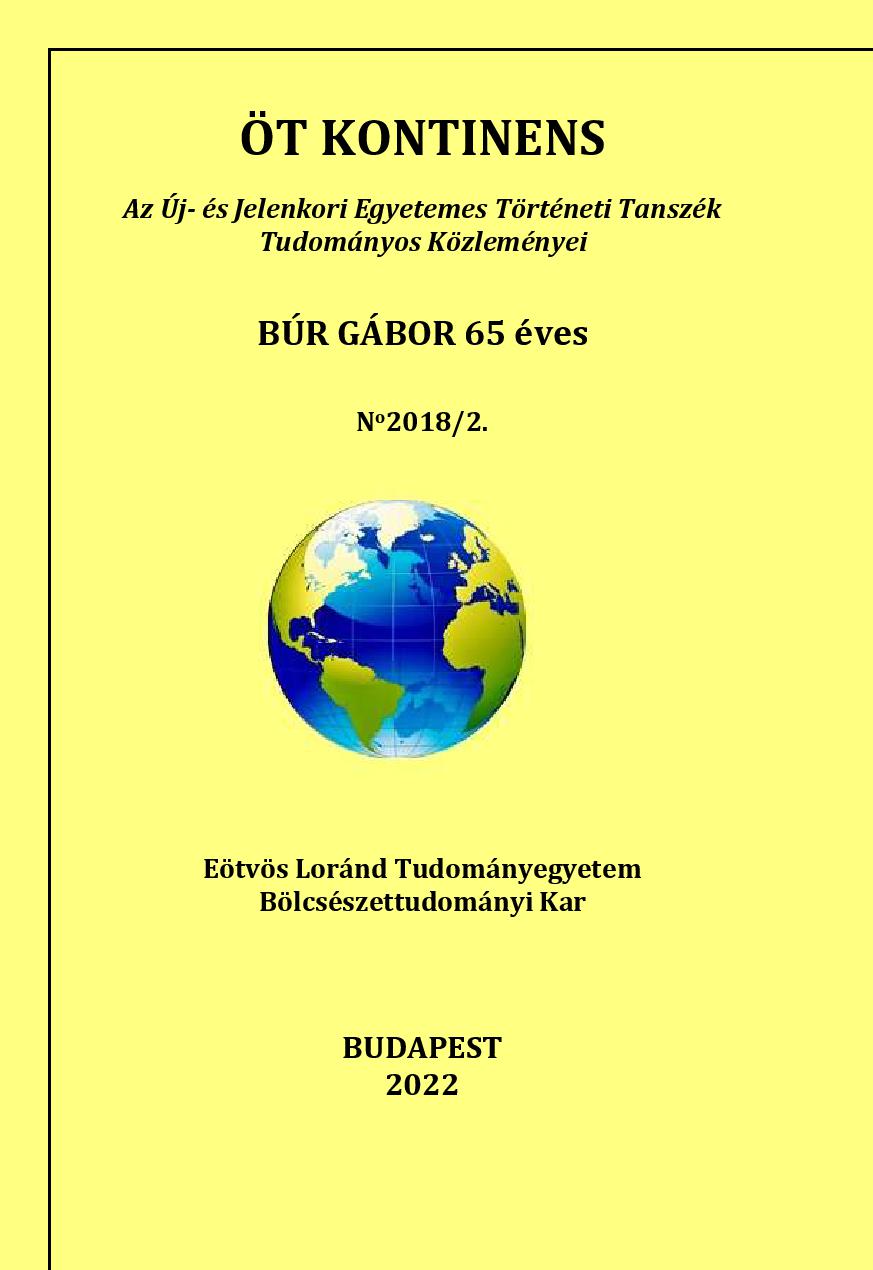Imperializmus-elképzelések és nemzetépítési törekvések a fasiszta ideológiában
Imperialism-concepts and nation building in fascist ideology
Author(s): Gábor AndreidesSubject(s): Diplomatic history, History of ideas, Political history, 19th Century, Interwar Period (1920 - 1939)
Published by: Eötvös Loránd Tudományegyetem, Új-és Jelenkori Egyetemes Történeti Tanszék
Keywords: italian fascism; Mussolini; fascist Italy; imperialism ideas; Italian East Africa;
Summary/Abstract: The narratives of imperialism of Mussolini’s regime can be examined on the basis of several aspects. One of the first and most important is an analysis that takes into account political aspects, but it can be just as im-portant to analyze the issue from a military policy, as well as an economic perspective. In addition to all these approaches, there are other aspects that are perhaps less discussed in the Hungarian scientific literature: the atrocities perpetrated by the Italian Royal Army in North Africa, which fundamentally queries in this question the sympathetic but probably wrong myth of the „Italiani brava gente”. We will examine the changes in the notions of imperialism in fascism in terms of the impact this has had on nation building, which is of paramount importance from an ideological point of view. After the unification of Italy in 1861, one of the most important tasks for the inhabitants of the peninsula was to create a sense of togetherness, to create a unified nation, and to spread a common Italian identity. The urgency of this task is further demonstrated by the fact that there was no marked difference of opinion on this issue between the ideas of the post-unification liberal governments and the fascism that came to power in 1922.There was also a fundamental consensus on Italian foreign policy in the Mediterranean. By the end of the first decade of the twentieth century, nationalist thought had strengthened across the country. This was indicated, among others, by the Italian Nationalist Association (Associazione Nazionalista Italiana), which was founded in 1910. Among its founders we can find several politicians who later became leading figures in fascism. The formulation of an expansive Italian foreign policy, accompanied by unpleasant military failures, began the process of colonization in the direction of the African territories still available. The intention was clear and unequivocal: to ensure the political, economic and cultural supremacy of Italy in the „Mare Nostrum” area.
Journal: ÖT KONTINENS
- Issue Year: 2018
- Issue No: 2
- Page Range: 85-100
- Page Count: 16
- Language: Hungarian

